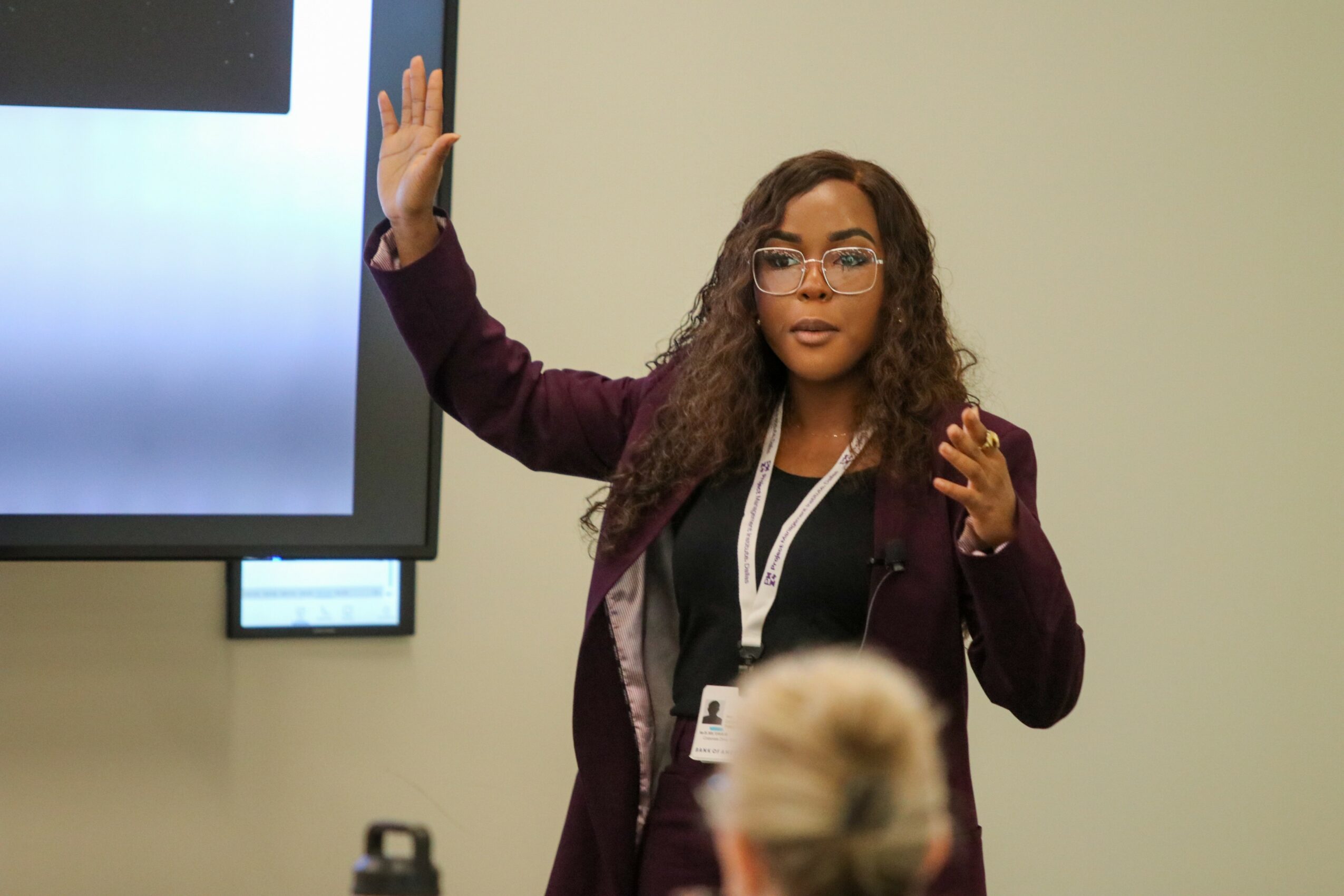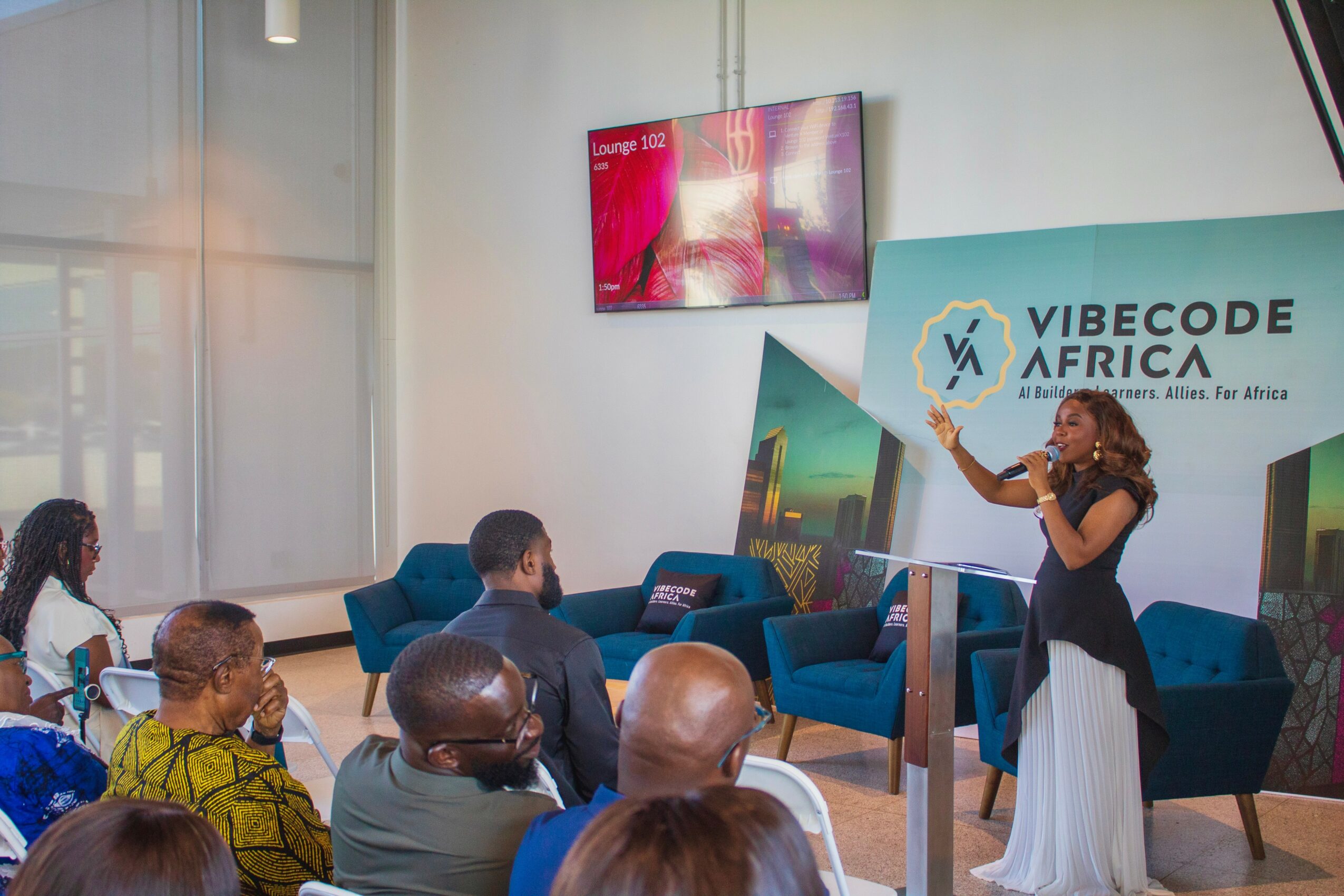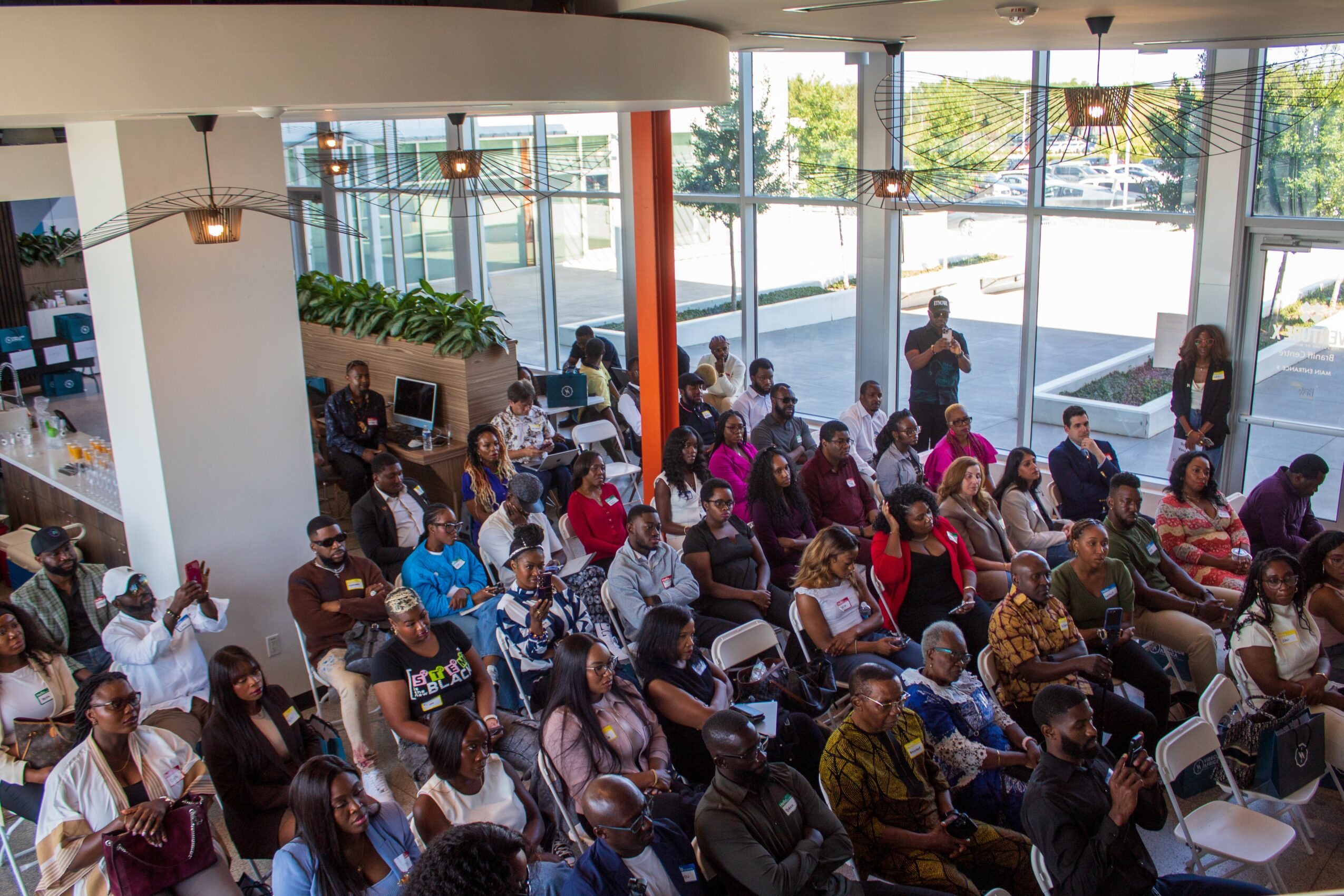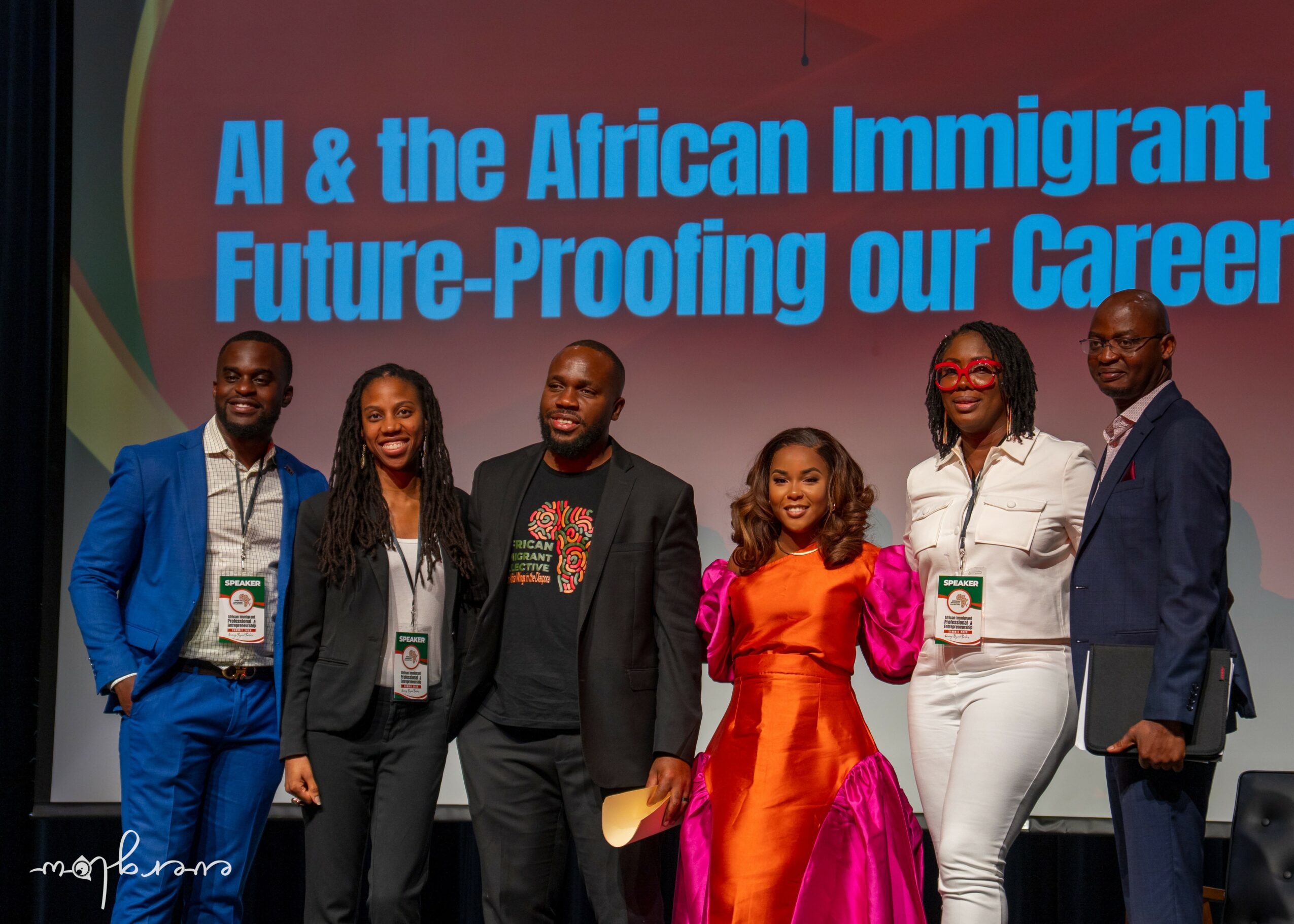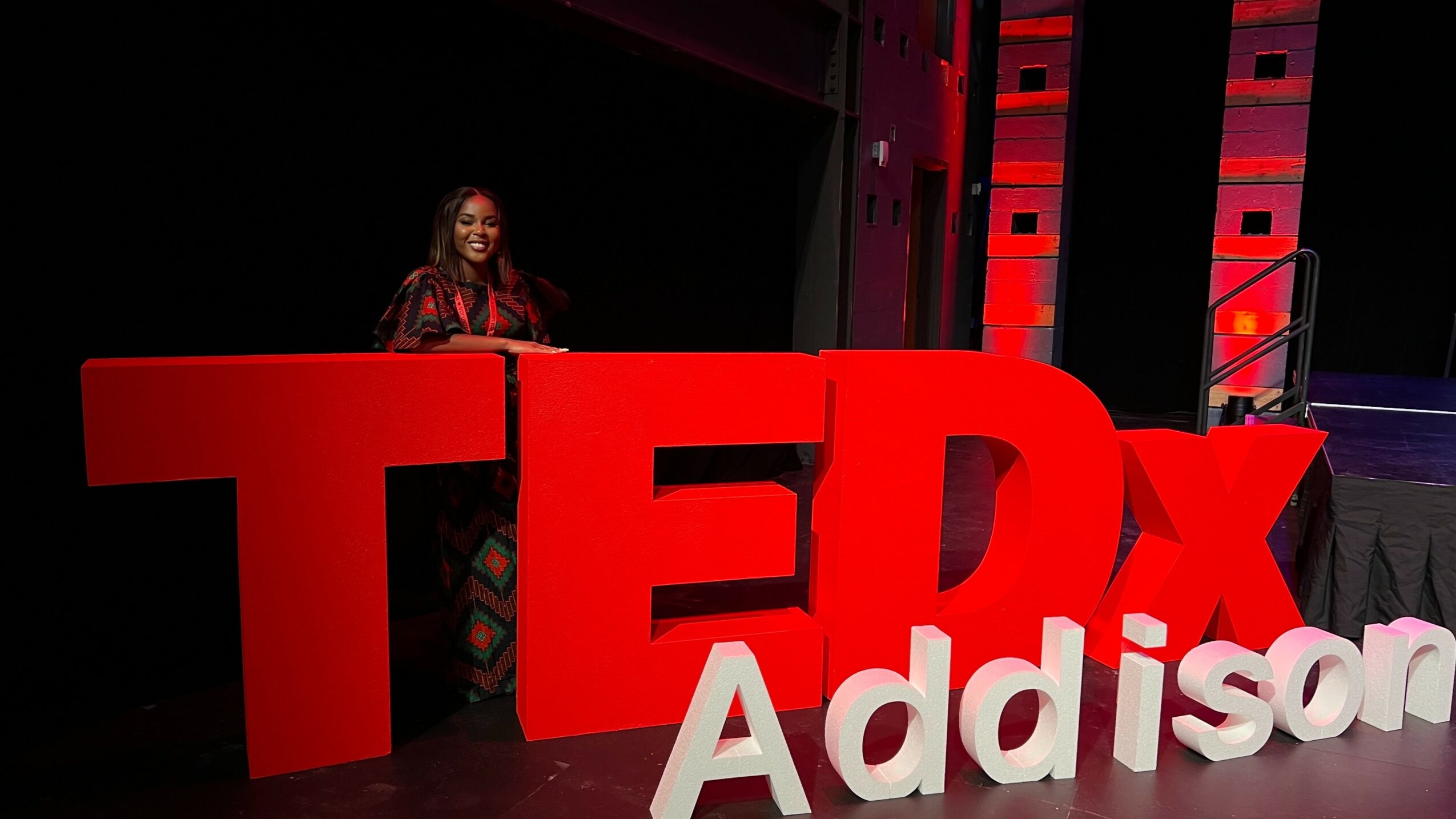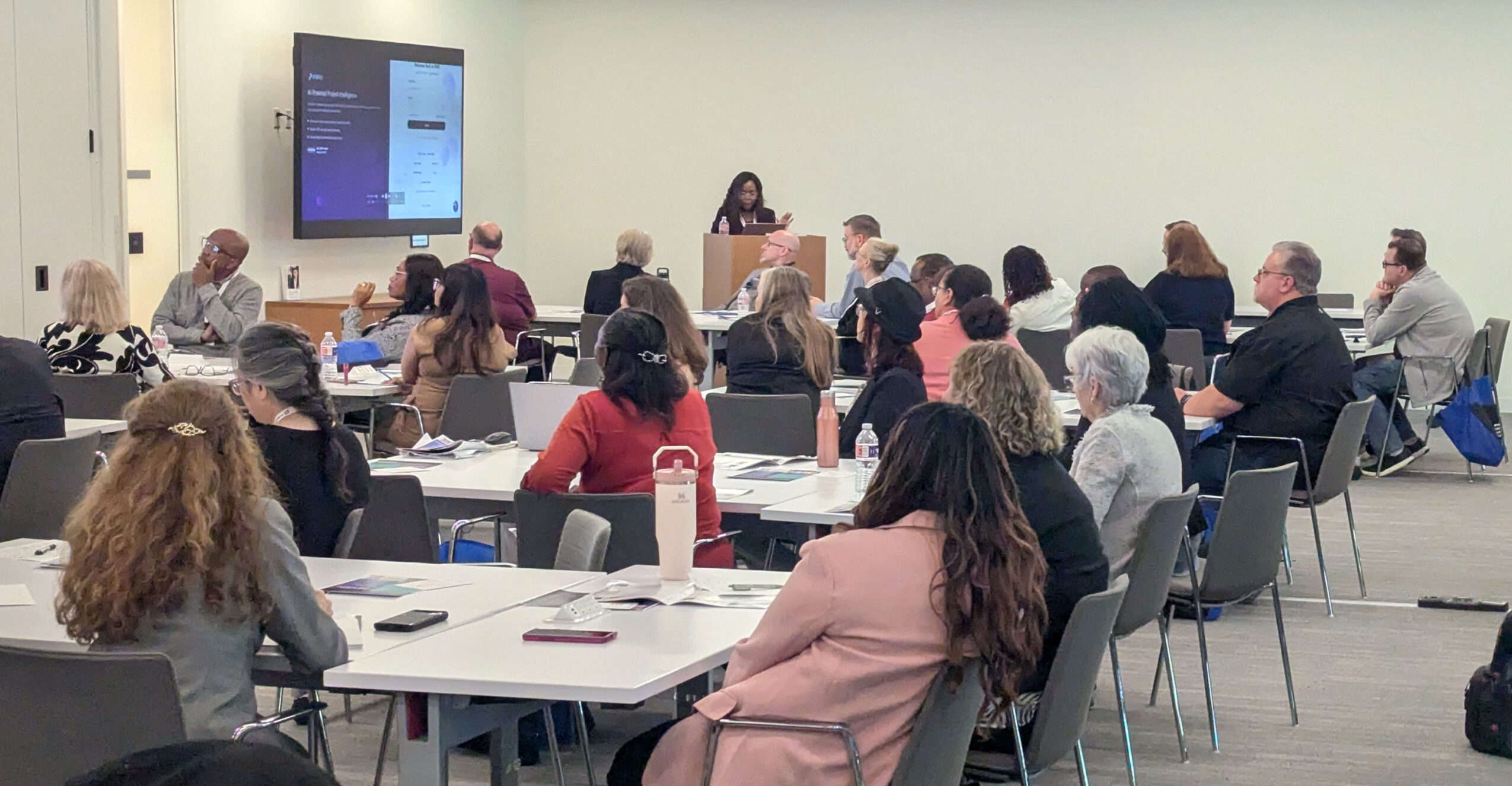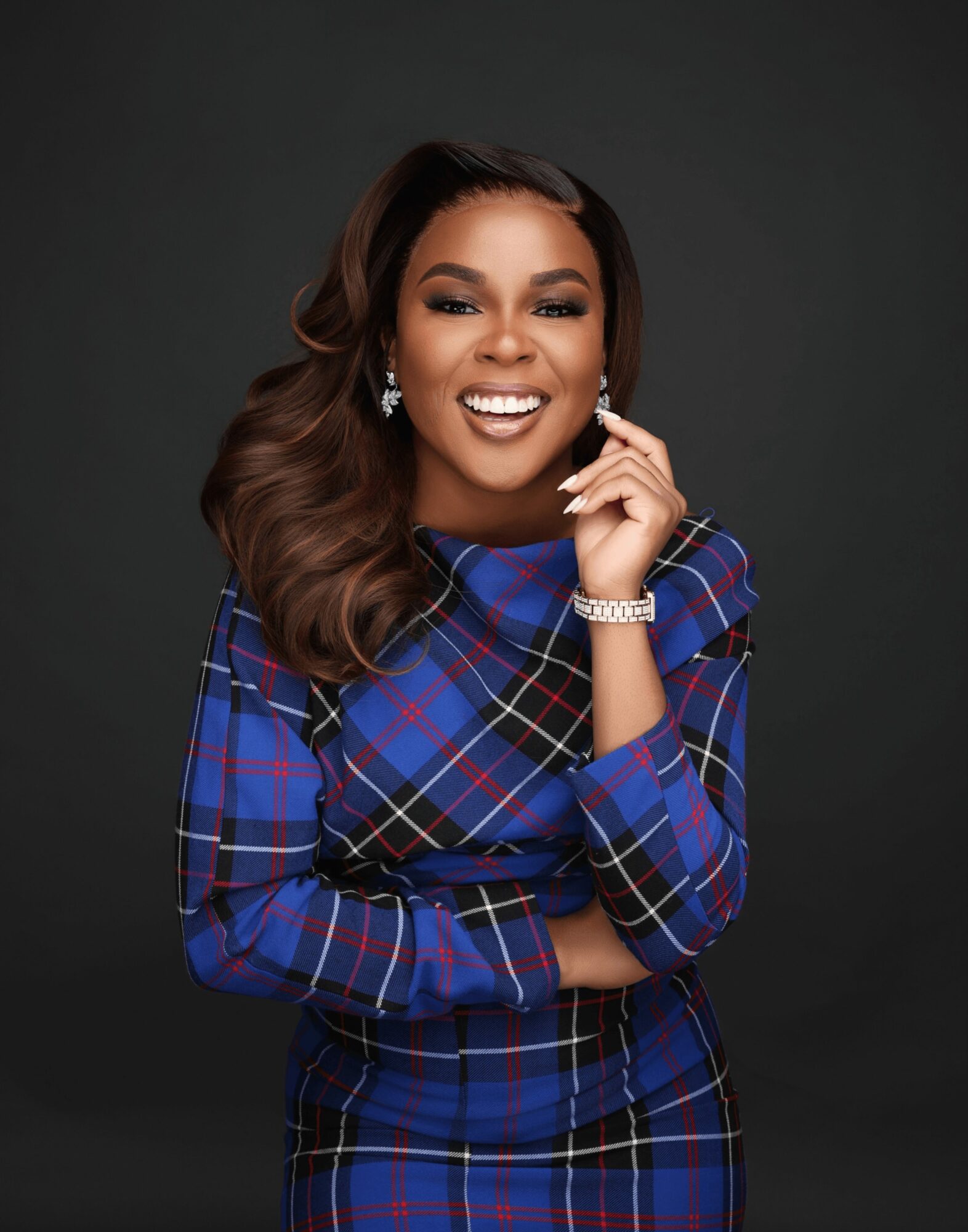

Today we’d like to introduce you to Lola Adey.
Alright, so thank you so much for sharing your story and insight with our readers. To kick things off, can you tell us a bit about how you got started?
My journey into AI didn’t start with a grand plan. It started with survival instinct and a bowl of Cold Stone’s Chocolate Devotion ice cream.
It was late one night, around 10 p.m., and I was glued to my laptop doing what felt like homework just to stay relevant. You know those headlines: “AI is coming for your job” and “People who know AI will replace those who don’t.” I wasn’t trying to be a visionary. I was just trying to keep up. So I enrolled in a LinkedIn Learning course on AI, thinking I’d check a box and move on.
But then something unexpected happened.
The course had us create a custom GPT for something trivial. I think it was planning a picnic or something equally inconsequential. But as I followed along, building this thing step by step, I had one of those rare light bulb moments where time just stops. I remember pausing mid-bite and thinking: *Wait. If I can build this for a picnic… what if I applied this to a real problem?*
As a product manager, I’d been wrestling with one of the most persistent pain points in our industry: translating business objectives into clear, actionable user stories that development teams can actually build from. It’s tedious, it’s time-consuming, and honestly, it’s where a lot of projects go sideways.
So I decided to experiment. First, I built a custom GPT. Then I ventured into OpenAI’s Playground and created an AI assistant. And then, despite having zero traditional coding experience, I taught myself to vibe code. Through trial and error, late nights, and a lot of curiosity, I built a working prototype that solved the exact problem I was facing.
And that changed everything.
I realized that if *I* could do this as a non-technical person, then what was stopping other people like me? What if I could help Africans in my community (people with incredible ideas but no coding background) do the same thing? What if we could collectively build AI solutions not just for ourselves, but for the continent we came from?
That question led me to launch “VibeCode Africa”.
On October 4th, 2025, I brought together over 100 Africans and allies right here in Dallas for our first major event. We didn’t just talk about AI. We built with it. In one day, we prototyped four AI solutions for Africa, including a healthcare solution that could genuinely make a difference. Watching people who walked in uncertain leave empowered, skilled, and excited about what they could create… that was my biggest win.
This journey has taught me something I didn’t know before: “there is space for me.” When you come into alignment with where you’re meant to serve, when curiosity meets courage, magic happens. I’ve found a way to serve my community while enjoying myself and growing in the process. And honestly? That’s a feeling I’d never experienced before.
So that’s where I am today: building, teaching, and creating space for others to do the same. Because the future of AI isn’t just for engineers. It’s for all of us.
We all face challenges, but looking back would you describe it as a relatively smooth road?
Smooth? No. But I’ll tell you this: it’s been a faith journey more than anything else.
I didn’t choose this path. God did. And because of that, I haven’t had those dramatic “lowest low” moments where I questioned everything. I’ve felt His hand guiding me every step of the way, which has kept me grounded even when things got hard.
But that doesn’t mean it’s been easy.
When I was building PIPA (my AI product management tool), I started over six times. Six. I’d spend hours researching, using ChatGPT and Claude to help me code because I don’t have a technical background, piecing things together line by line. I’d verify everything, feel confident, then drop the code into my vibe coding tool and watch it completely fall apart. And at that point, all I knew how to do was start from scratch. Again. And again.
There were moments of real frustration. Moments where I’d sit there thinking, “Did I just waste my time and money building something nobody’s going to use?” I’m about to launch Piper soon, so we’re about to find out. But in those moments, I had to remind myself: this isn’t just about me. This is bigger than me.
Then there was Vibe Code Africa. When I first had the vision to bring 100+ Africans and allies together in Dallas to build AI solutions, I was terrified. The idea felt too big. Too ambitious. I thought maybe I should just back out before I even started. And then came the practical pressures: ticket sales were slow, financial stress was real, and that little 5% voice in my head kept whispering, *”What if people don’t show up?”*
But here’s the thing about faith: it doesn’t eliminate fear. It just gives you the strength to move forward anyway. I kept praying for help, for strength, for clarity. And on October 4th, 2025, over 100 people showed up. We built four AI solutions for Africa in one day.
So no, it hasn’t been smooth. But it’s been grace-filled. And that’s made all the difference.
As you know, we’re big fans of VibeCode Africa. For our readers who might not be as familiar what can you tell them about the brand?
Vibe Code Africa is a community where Africans and allies come together to learn, build, and innovate with artificial intelligence.
We exist because the future of AI shouldn’t belong to just one demographic or one part of the world. It should belong to anyone with curiosity, courage, and a problem worth solving. So we’ve created a space where professionals can upskill to stay relevant and marketable in their industries, where entrepreneurs can build AI solutions for their businesses, and where dreamers can prototype technology that solves real problems back home in Africa.
Here’s what makes us different: we’re not just teaching theory. We’re building. At our Vibe Code Africa Summits (like the one we held on October 4th with over 100 attendees), we dedicate time to actual build sprints where participants create AI solutions for African challenges. Healthcare access. Education gaps. Infrastructure. Real problems that need real solutions. And we’re not stopping at prototypes.
We’re developing an innovation arm specifically designed to take those prototypes to the next level. Think of it as an incubator: we develop the applications, partner with organizations and sponsors who share our vision, and work to bring these solutions directly to the people who need them most. Some of those solutions will serve communities. Others will scale commercially. All of them will be powered by Africans.
When someone engages with Vibe Code Africa, they’re not just joining a program. They’re joining a movement. Whether you’re an AI expert or a complete beginner, a professional or an entrepreneur, African-born or an ally who loves the continent, you’ll find your place here. This is where you can find your AI co-founder, your study buddy, your accountability partner, your mentor, or the person who’s going to hire you. It’s a community built on shared purpose and mutual growth.
What am I most proud of? That we’re proving something powerful: you don’t need a computer science degree or venture capital to be an AI builder. You just need access, guidance, and community. And we’re providing all three.
In the next 2-3 years, we’re building Vibe Code Africa into a globally recognized hub of education and innovation. A place known not just in Dallas, but across the world, as the center where Africans are researching, building, and deploying AI solutions that matter. A place where impact and innovation go hand in hand.
Who else deserves credit in your story?
I have to start with God. This entire journey started with Him, and He’s been carrying me through every single step. I didn’t choose this path. He did. And I’m grateful beyond words.
Then there’s my family: my mom, my dad, my sister, and my brothers. A lot has happened in my personal life that honestly should have made them give up on me. But instead, they loved me more. Fiercely. Unconditionally. Knowing I have that foundation, that safe space no matter what, has given me the courage to take risks and dream bigger. They are the reason I work hard. They are the reason I keep going.
My best friend, Simisola Lawal, was the first person who believed in the Vibe Code Africa vision. Simisola is a branding and marketing expert currently based in Miami but making her move to Dallas. The moment I told her about the idea, she went all in. She didn’t just execute the branding and marketing with excellence through her brand Simivisuals (though she absolutely did). She invested her own resources, her own time. She flew to Dallas on her own dime to make sure we succeeded. When people researched our brand before attending the summit, they got a good feeling. That was her. That brand excellence? That was all Simivisuals.
I’m deeply grateful to the speakers and innovation leads who said yes when this was just a vision: Gabe Olokun, founder of Khaime.ai; Dr. Geanie Asante, a TEDx speaker; Joyce Agbanobi, founder of My PlusOne; and our innovation leads Ron Dagdag, Brandon Ward (founder of Keysha), and Richard Igbiriki. They showed up, shared their expertise, and helped make the summit what it was.
Our sponsors were instrumental. Abe’s Chowtown sponsored all the food. Tobi Ogboloju of Le Puissant Skincare was an anchor supporter, always there when we needed help. ETNOWE provided crucial financial support. And Venture X, our venue, gave us a huge discount that made the event possible. I couldn’t have done this without them.
I also have to shout out my powerhouse team, the Vibe Code Africa crew who worked behind the scenes to make everything happen. And honestly, the entire community. The 100+ people who showed up to that summit on October 4th? They believed in what this could be before it even existed. They took a leap of faith, and now they’re not just attendees. They’re family.
This isn’t a solo journey. It never was. Every person I’ve mentioned played a role in turning a vision into a movement. And I’m grateful to every single one of them.
Contact Info:
- Website: www.lolaadey.com / www.vibecodeafrica.com
- Instagram: https://www.instagram.com/thelolaadey/ and https://www.instagram.com/vibecode.africa/
- LinkedIn: https://www.linkedin.com/in/lola-adey/ and https://www.linkedin.com/company/vibecode-africa/
